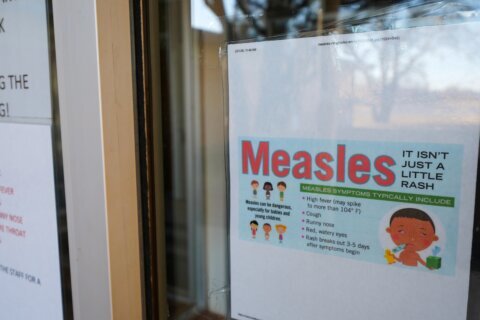Efforts to change policing in Montgomery County, Maryland, are coming on a variety of fronts.
County Executive Marc Elrich offered one piece of legislation that would create a civilian assistant police chief position.
Police Chief Marcus Jones, who testified saying he fully supports the plan, said, “This assistant chief would be expected to enhance community policing,” and that position would “focus on improving the trust between the community and the police department, as well as focus on evidence-based policing practices.”
Lee Holland is with the Fraternal Order of Police Lodge 35, which represents more than 1,400 active and retired Montgomery County police officers. Holland said his organization supports the proposal, “as long as the person has experience, education and training” in the area of criminal justice.
However, Holland expressed concerns about the cost of the program, and he suggested an outgoing position could be filled by the person selected to serve in the non-merit civilian position.
The Montgomery County Council also heard a proposal to enhance emergency response to calls during which mental health is an issue.
Under the plan, $592,202 would be made available to help fund a team of six social workers as part of a mobile crisis team to respond to certain calls for service in place of police.
Marilyn Kresky-Wolff with Jews United for Justice testified in favor of the plan.
“[The] time is right to solidify better access to crisis care, instead of filling jails and crowding emergency departments,” Kresky-Wolff told council members.
Christine Hong, with the nonprofit Interfaith Works, talked about her organization’s success in dealing with people experiencing homelessness who have mental health issues. She said 40% of the organization’s clients have a form of mental illness.
Hong cited the case of a man she identified only as Chuck, a 53-year-old diagnosed with schizophrenia who used to carry a two-by-four board with nails. Chuck also has paranoia, delusions and hallucinations.
Once connected with mental health care, she said, there was positive change.
“He’s been housed for over three years. He’s been reconnected with his children and even met his grandchildren for the first time,” Hong said.
Hong said that when Chuck and clients like him are seen as threats, they could “easily become the next George Floyd,” a Black man who was killed in Minneapolis police custody in May.
But when trained mental health care advocates intervene, Hong said the results can be positive.
“These men were often viewed as dangerous threats to their community; however because of the interventions of the mobile crisis team, they are living safely in our community, no longer seen as threats, but as our fellow neighbors,” Hong said.








